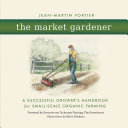Instant Insights: Weed management in regenerative agriculture
About this ebook
The first chapter provides an analytical review of the adoption of Conservation Agriculture (CA) in Sub-Saharan Africa by smallholder farmers, focusing on the challenges posed by weed management. The chapter assesses chemical and non-chemical weed control methods and their benefits in CA systems.
The second chapter considers the adoption of integrated weed management (IWM) in organic cropping systems, focussing on the key challenges that can arise as a result of this adoption. It also presents examples of successful integration between preventive, cultural and direct tactics in an IWM strategy.
The third chapter highlights an increasing need for IWM strategies in the face of herbicide-resistant weeds, soil degradation and environmental contamination by herbicides. The chapter reviews the cultural techniques available to manage weeds in a sustainable manner.
The fourth chapter introduces the concept of using crop rotations and cover crops as an effective and sustainable strategy for controlling weeds and looks ahead to future research in this area.
The final chapter utilises four detailed case studies from across Europe to illustrate the effectiveness of combined methods to control weeds and preserve/improve farmers’ income.
About the author
Dr Gottlieb Basch is a Full Professor in the Department of Plant Science at the University of Évora, Portugal. He is President of the European Conservation Agriculture Federation and has contributed to a number of EIP AGRI Focus Groups, EU Horizon and other research projects on more sustainable methods of crop cultivation.
Dr Sjoerd W. Duiker is Professor of Soil Management and Applied Soil Physics at Penn State University, USA. He has made significant contributions to both research and extension in developing more sustainable soil management practices in such areas as no-till systems, the use of cover crops, mulches and more diverse crop rotations. He is a member of the Governing Board of the Northeast Cover Crops Council which brings together universities, farmers, government agencies and others to optimise cover crop use in the north-eastern states of the USA. Professor Duiker is also a co-editor of the forthcoming Burleigh Dodds Science Publishing collection Weed management in Conservation Agriculture systems.
Dr Paolo Bàrberi is Professor of Agronomy and Field Crops and Head of the Agroecology Group at the Scuola Superiore Sant’Anna (SSSA), an internationally-renowned university in Pisa, Italy (ranked number 4 in the world among small universities, according to the Times Higher Education World University Rankings). Professor Bàrberi is a founding member and Vice-President of Agroecology Europe and has written over 330 publications on topics in sustainable agriculture, agrobiodiversity and agroecology.
Dr Anna-Camilla Moonen is an Assistant Professor in Agronomy and Field Crops at the Scuola Superiore Sant’Anna (SSSA). She is a member of the editorial board of Weed Research and her research focuses on agroecological co-design of sustainable cropping systems with a special interest in field margin management, the use of cover crops to manage weed communities, and functional agrobiodiversity in arable and horticultural cropping systems for integrated weed and pest management. She has written over 110 publications in this area.








